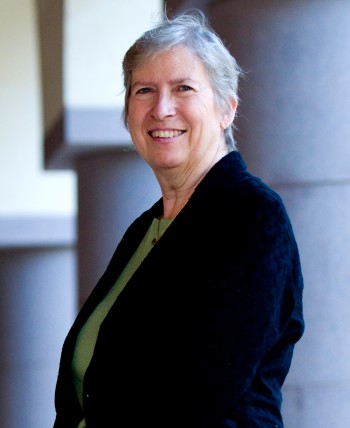Dean’s Update: Graduation, Funding and Big Science in 2017
June 1, 2017
Jackson School community,

Congratulations on finishing another great academic year of stellar education and science research. It was invigorating to see over 100
students walk across the stage at commencement and hear about their future plans. I’m very proud of the caliber of students who are graduating from the Jackson School of Geosciences, and firmly believe they will help shape the world for the better in the years to come.
As you probably know, the Texas Legislative session has ended. The stakes were very high for the Jackson School going in as the Legislature was considering eliminating state funding for special items, which included the Bureau of Economic Geology and Institute for Geophysics. We made it through better than we had feared, but not as well as we would have liked. The Legislature made cuts to special items that will affect us, but the impact is still unclear. I will update you as details become available.
This Legislative session at home and my trips to Capitol Hill in Washington, D.C. again this spring reaffirm the importance of explaining geosciences to policy makers and the public at large. The work we do is vitally important for the country’s economy, national security and environment. Geoscientists lead the way in tackling problems related to energy, water, natural disasters, climate, natural resources and other issues that are critical for society. We need to make sure we’re doing our part as ambassadors for the field.
A perfect example of this kind of science is the recent expedition by Peter Flemings’ group to drill for pressurized cores of methane hydrate from under the Gulf of Mexico. After a tough start, the team had a tremendously successful mission. The pressurized cores began arriving this week, and some 21 pressurized cores will be stored and analyzed in the newly built lab in the basement of JGB. We should all be very proud of Peter and his group for leading this Department of Energy-funded, cutting-edge science effort with the potential to help pioneer an energy source of the future.
Another equally exciting drilling expedition, co-led by Sean Gulick, successfully drilled into the peak ring of the Chicxulub impact crater off Yucatán, Mexico. This impact resulted in the demise of the dinosaurs. A BBC documentary on the drilling garnered 2.3 million viewers when first shown and is well worth viewing. It brings our science and school into the public spotlight.
On a much sadder note, we all said goodbye to former University President and Bureau Director Peter Flawn last month. The term “giant” is often overused, but it is spot-on when describing Peter’s impact on the university and the world of geosciences. He will be greatly missed.
This summer, I will be leading the Heads and Chairs Workshop on the Future of Undergraduate Geoscience Education at the Earth Educators Rendezvous in Albuquerque. I have been privileged to lead the National Science Foundation-sponsored effort on revitalizing undergraduate geoscience education nationally. I look forward to seeing our Department’s continued progress towards enhancing our undergraduate programs in the year.
I know for most of you the summer will be filled with research, trips to the field and conferences, and vacations. I wish you safe and enjoyable travels.
Cheers,
Sharon Mosher, Dean
